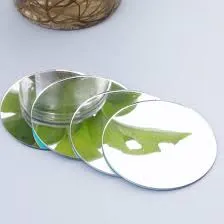

The Versatility of Float Glass Sheets in Modern Applications
Float glass sheets, a product of the float glass process, have become an integral material in various industries. This unique form of glass is created by floating molten glass on a bed of molten tin, resulting in a smooth, uniform thickness. The product is renowned for its excellent clarity, strength, and aesthetic appeal, making it a preferred choice for architects, designers, and manufacturers alike.
One of the primary advantages of float glass sheets is their exceptional optical clarity. The process of creating float glass minimizes distortions and bubbles, resulting in a high-quality product that transmits light with remarkable transparency. This quality makes float glass ideal for applications where visibility is paramount, such as in windows, facades, and display cases. In urban settings, where natural light and views are essential, float glass allows for the seamless integration of indoor and outdoor environments.
In addition to its aesthetic qualities, float glass sheets offer significant durability
. The manufacturing process imparts inherent strength, making them resistant to impact and wear. This durability is crucial in settings subject to frequent use or environmental stress, such as commercial buildings and public spaces. Additionally, advances in glass treatment technologies have further enhanced the mechanical properties of float glass, enabling it to withstand high temperatures and thermal fluctuations without compromising its integrity.
The versatility of float glass extends beyond conventional use in windows and doors. It is increasingly being utilized in artistic and innovative applications. Designers incorporate float glass into furniture, lighting fixtures, and decorative installations, showcasing its potential as a medium for expression. Its smooth surface can be easily treated with various coatings to enhance its properties or to achieve specific visual effects, expanding its application horizons even further.
Moreover, float glass sheets are an eco-friendly option for construction and design. Being made primarily from silica, a readily available natural resource, float glass can be recycled without significant loss of quality. This sustainability aspect makes float glass sheets an attractive choice for environmentally conscious builders and designers looking to minimize their ecological footprint.
The rise of smart glass technologies has also paved the way for innovative uses of float glass sheets. Self-tinting or electronically controlled glass can now be produced using float glass techniques, allowing for enhanced energy efficiency in buildings. These advancements not only improve interior comfort but also reduce reliance on artificial lighting and heating, aligning with global sustainability goals.
In conclusion, float glass sheets represent a remarkable fusion of beauty, strength, and versatility. Their applications span a wide range of industries, from architecture to interior design, and even extend into technological innovations. As we move towards a more sustainable future, the importance of materials like float glass, which combine functionality with aesthetic appeal, will only continue to grow. Whether used in a modern office building or a stylish piece of furniture, float glass sheets will undoubtedly remain a staple of contemporary design.